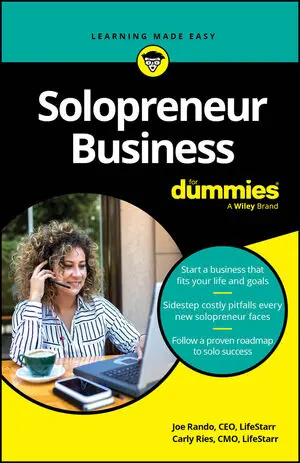Considering that the most common, albeit dangerous, method of operating a business is as a sole proprietorship, you may well be running a sole proprietorship currently. Although sole proprietorships are easy and cheap to start, they offer zero liability protection, and they give your customers and employees little confidence in your business acumen.
Plus, due to the fact that sole proprietorships don’t have shares you can sell, you’ll never be able to raise capital or find investors.
Converting from a sole proprietorship to a limited liability company (LLC) can be a pretty effortless, tax-free process. Your business assets are currently in your name, so transferring them is easy. You simply contribute the business’s assets to the LLC in exchange for your ownership interest.
If you convert your sole proprietorship to a single-member LLC simply by contributing your business assets to the LLC in exchange for membership interests — in other words, you use your business assets as the currency to purchase ownership in the new entity — then no taxable event occurs. With the IRS, exceptions always exist, but chances are that the transfer is tax-free.
However, if your company has outstanding debt, you may face one potential tax pitfall called a deemed cash distribution. In a business, the two kinds of debt are
Recourse debt: Debt that one or more members is personally responsible for should the business default on the loan
Nonrecourse debt: Debt that’s secured only by the business; the owners have no personal stake.
A deemed cash distribution occurs when a member reduces his share of the business’s recourse debt.
The IRS treats any reduction in a member’s share of recourse liability as a cash distribution, and, like a cash distribution, the member must pay taxes on any amount that goes over his tax basis. Luckily for LLCs, being the most flexible entities around, allocations and distributions of profit can be amended and handed out disproportionately (as long as a majority of the members agree).
Frankly, getting around the deemed cash distribution problem isn’t too difficult if you have a qualified accountant to help you. If your company has substantial business loans and liabilities and you’re bringing on a partner, speak with an accountant who has extensive experience with partnership taxation.
If you don’t currently have an accountant onboard, try to find other businesses with structures like yours and get a referral. The ins and outs of deemed cash distributions can get pretty complex, and you need to have a clear map through any potential tax minefield. A neighborhood bookkeeper simply won’t cut it.
You know that old adage, “Don’t change horses midstream”? Remember it if you’re considering changing your accounting methods, and keep your accounting method the same when converting from a sole proprietorship to an LLC.
For instance, if you’re on a cash-based system, don’t switch to an accrual-based system. In the IRS’s eyes, this switch could “accelerate the income,” which means taxes, taxes, and more taxes! If you really want to change your accounting method, wait until the conversion has been completed and then have your tax advisor assist you.






